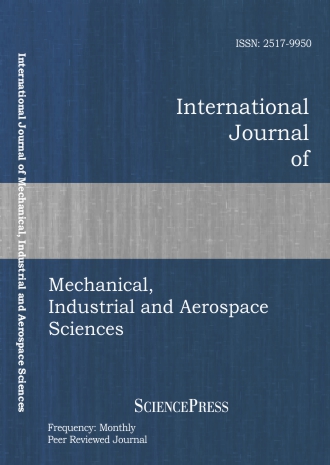
Scholarly
Volume:3, Issue: 2, 2009 Page No: 230 - 236
International Journal of Mechanical, Industrial and Aerospace Sciences
ISSN: 2517-9950
1198 Downloads
Evaluation of Model and Performance of Fuel Cell Hybrid Electric Vehicle in Different Drive Cycles
In recent years fuel cell vehicles are rapidly appearing all over the globe. In less than 10 years, fuel cell vehicles have gone from mere research novelties to operating prototypes and demonstration models. At the same time, government and industry in development countries have teamed up to invest billions of dollars in partnerships intended to commercialize fuel cell vehicles within the early years of the 21st century. The purpose of this study is evaluation of model and performance of fuel cell hybrid electric vehicle in different drive cycles. A fuel cell system model developed in this work is a semi-experimental model that allows users to use the theory and experimental relationships in a fuel cell system. The model can be used as part of a complex fuel cell vehicle model in advanced vehicle simulator (ADVISOR). This work reveals that the fuel consumption and energy efficiency vary in different drive cycles. Arising acceleration and speed in a drive cycle leads to Fuel consumption increase. In addition, energy losses in drive cycle relates to fuel cell system power request. Parasitic power in different parts of fuel cell system will increase when power request increases. Finally, most of energy losses in drive cycle occur in fuel cell system because of producing a lot of energy by fuel cell stack.
Authors:
References:
[1] Bolthen fuel cell, "Hydrogen and fuel cell", 1379-1383, number 1-21.